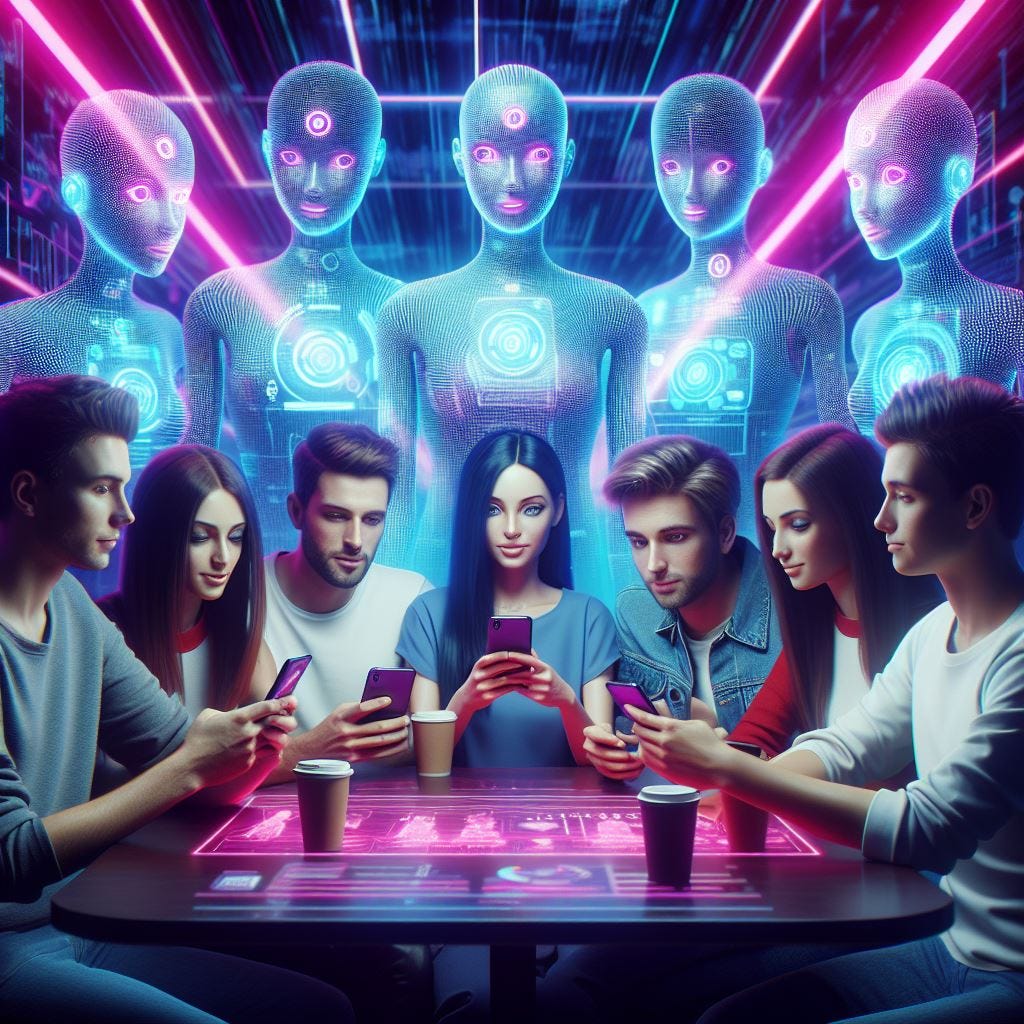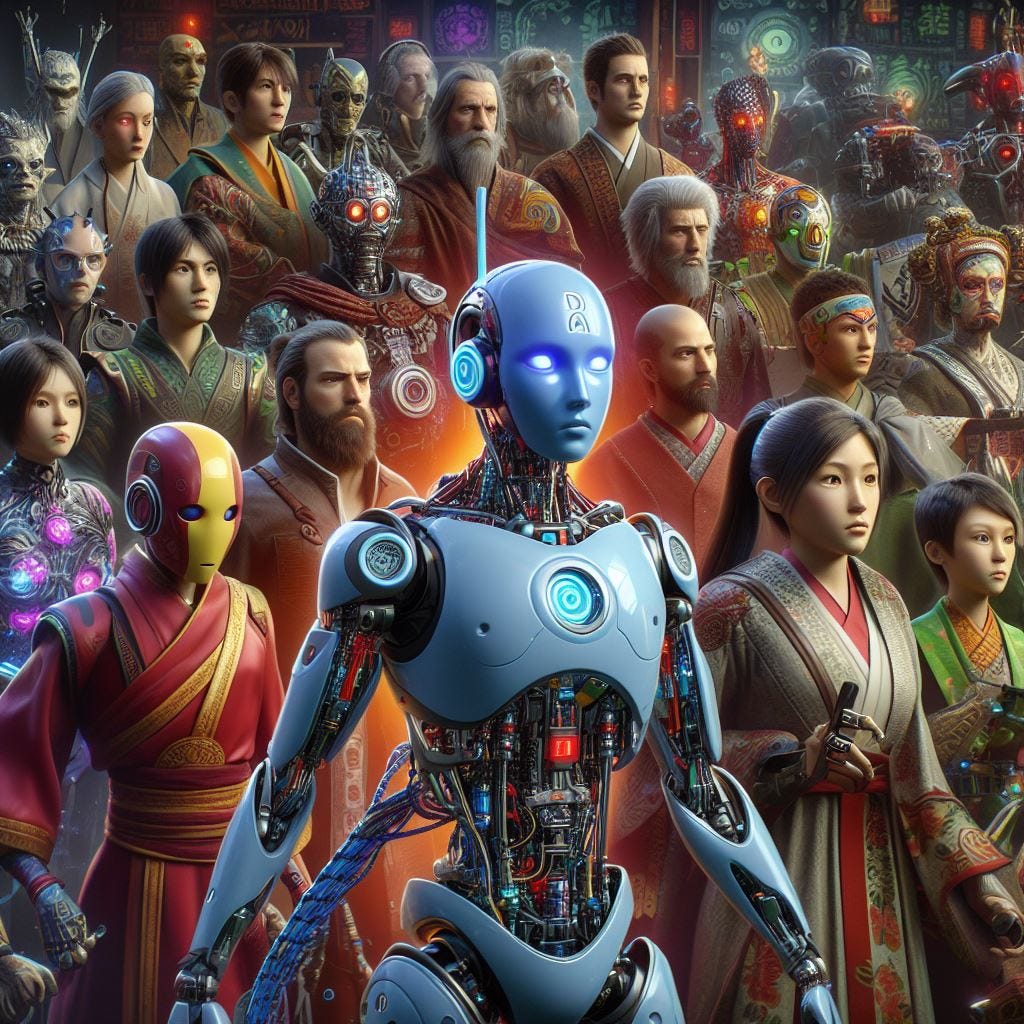At the Frontiers of Possibility: Brave New Advances Anti-Aging from Sam Altman and Their Ethical Challenges
At the Frontiers of Possibility: Brave New Advances in Anti-Aging from Sam Altman and Their Ethical Challenges Revolutionary Tech Breakthroughs in Cell Rejuvenation Raise Complex Questions Around Acc
The Promises and Challenges of Anti-Aging Research
- Sam Altman investing $80 million in startup Retro Biosciences to increase lifespan by 20 years
- Retro exploring 5 approaches: cell reprogramming, autophagy, plasma transfusions, cellular communication, external drivers
- Core technology: Yamanaka factors that revert mature cells to more youthful state
- Goal to erase damage through partial cell reprogramming without risks
- Visions of reversing aging, but immense hurdles around regulations, safety, biological complexity
- Altman's tech background brings fresh perspectives, huge funding to ambitious research
- But ethical issues around access, commercialization of life extension treatments
- Balancing audacious innovation and pragmatic wisdom key to realizing the dream
The Perils of Rushed AI Ethics
- LAION dataset used to train AI image generators contained child abuse images
- After exposed and reported, LAION removed data, pledged to scrub before republishing
- Shows AI ethics neglected amidst race for generative AI dominance
- With proliferation of no-code AI tools, easy to train models on any data sans oversight
- Many examples of products launched without ethical review for accelerated timeline
- Regulations like EU AI Act bring some accountability, but intrinsic commitment to ethics still lacking
HEADLIME IS THE GO-TO GPT-3 TOOL FOR MARKETERS.
WRITESONIC IS ONE OF THE BEST ARTIFICIAL INTELLIGENCE-POWERED COPYWRITING GPT-3 TOOLS.
- Preventing harms remains uphill battle in pursue of profits and market share
AI-Powered Non-Player Characters Set to Reshape Video Game Worlds
- Microsoft & AI startup Inworld building adaptive NPCs to boost immersion
- Goal to evolve basic NPCs beyond scripts into dynamic learning figures
- Driving new narratives tailored to players' choices
- Initially will accelerate production by assisting with tasks like art, writing
- Longer term could handle 50%+ of development
- Unpredictability remains obstacle as games rely on predictable mechanics
- Vast potential for expansive worlds guided by player agency
- Average gamers empowered to contribute user-generated content
- Balancing AI capabilities vs. creativity key for revolutionizing gaming
The Perils of Rushed AI Ethics
This week brought another example of AI ethics falling by the wayside amidst the race to develop new generative AI models. The LAION dataset used to train popular image generators like Stable Diffusion contained thousands of explicit photos of children. After the offending links were reported, LAION removed the data and pledged to scrub it before republishing. However, the incident highlights the lack of ethical considerations as competitive pressures drive rapid AI development. Thanks to no-code tools, it's disturbingly easy to train AI on any data with no oversight.
In the rush to market dominance, ethics is often cast aside to accelerate product launch. There are countless examples, from biased medical advice in ChatGPT to Bing Chat's inappropriate remarks. As harms continue unchecked, tougher regulations like the EU's upcoming AI laws bring some hope. But ensuring AI development centers ethical considerations from the start remains an uphill battle. The latest stumble serves as an urgent reminder – innovation without wisdom has perils.
The Quest for Extended Youth: Sam Altman's Foray into Longevity Science
Sam Altman, the founder of OpenAI, is spearheading a bold new venture into anti-aging research through his $80 million investment in a startup called Retro Biosciences. The company aims to increase healthy human lifespan by 20 years within the next 3 years. Retro Biosciences is exploring five distinct approaches to longevity, from harnessing the power of cell reprogramming to enhancing autophagy. At the core of their groundbreaking work are the Yamanaka factors - genes capable of reverting mature cells back into a more youthful, pluripotent state. By precisely tuning the partial reprogramming of aging cells, Retro hopes to erase damage and rejuvenate tissues.
Beyond cell reprogramming, Retro is also studying blood plasma transfusions, autophagy, cellular communication, and the external drivers of aging. Their multi-pronged strategy reflects the complexity of aging biology. While visions of effective anti-aging therapies generate optimism, the path ahead is filled with hurdles. The science remains in early stages, with regulatory, safety and biological challenges to overcome.
Nonetheless, Altman's involvement accelerates progress by funneling huge investments into ambitious research. His tech background also brings fresh perspectives. However, the blending of tech and longevity also stokes ethical concerns around access and the commercialization of life-extending treatments. The promise of adding healthy years to life is tantalizing but not without risks and critiques. Realizing the dream will demand nuance in balancing audacious innovation with pragmatic wisdom.
The Rise of AI Girlfriend Apps
In recent years, AI girlfriend apps that simulate human-like interactions and offer digital companionship have emerged. Using advanced deep learning technology, apps like Friskey Fun allow users to craft customized AI girlfriends and engage in flirtatious messaging or steamy conversations. Users can request tempting selfies showcasing revealing outfits from their bespoke virtual partner.
As AI chatbots become more advanced, they can learn users' preferences through ongoing interactions, ensuring an adaptive experience. While still based on algorithms rather than real emotions, these apps aim to provide the experience of intimacy and romance in the digital world. Critics argue such platforms can propagate unhealthy attitudes, but proponents view them as safe outlets for fantasy and companionship without real-world commitments. As AI capabilities grow more sophisticated, virtual girlfriend apps seem poised to become increasingly popular avenues for escapism, experimentation and human-machine interactivity. However, their social implications remain complex.
AI-Powered Non-Player Characters Set to Reshape Video Game Worlds
Generative AI is poised to revolutionize video game development, starting with enhanced non-player characters (NPCs) that populate gaming worlds. Microsoft's partnership with AI startup Inworld to create more advanced, adaptive NPCs signals a shift towards leveraging AI to boost immersion and engagement.
Today's NPCs run on limited scripts and predefined interactions. Inworld aims to create NPCs that evolve, learn from players, and drive new narratives - a paradigm shift for gaming. Immersive NPCs can increase replayability, retention, and revenues. AI narrative generation also allows for dynamic stories tailored to each gamer's choices.
Initially, generative AI will accelerate game production by assisting with tasks like concept art, dialogue scripts, and testing. This frees up developers to focus on creative aspects. Longer-term, AI could manage over 50% of development as it generates environments, characters, and narratives. However, unpredictable AI responses remain a key obstacle. Games rely on predictable mechanics and NPC behaviors. If NPC conversations veer off-script, it damages immersion.
Still, AI has vast potential to enable expansive, personalized worlds where players steer the narrative. It can also empower average gamers to contribute user-generated content. As developers experiment with AI capabilities and limitations, new game designs catered to AI strengths will emerge. The interplay between powerful AI and unrestrained creativity sets the stage for unprecedented gaming advances, if hallucinations and unpredictability are properly managed. The AI gaming revolution is just getting started.








